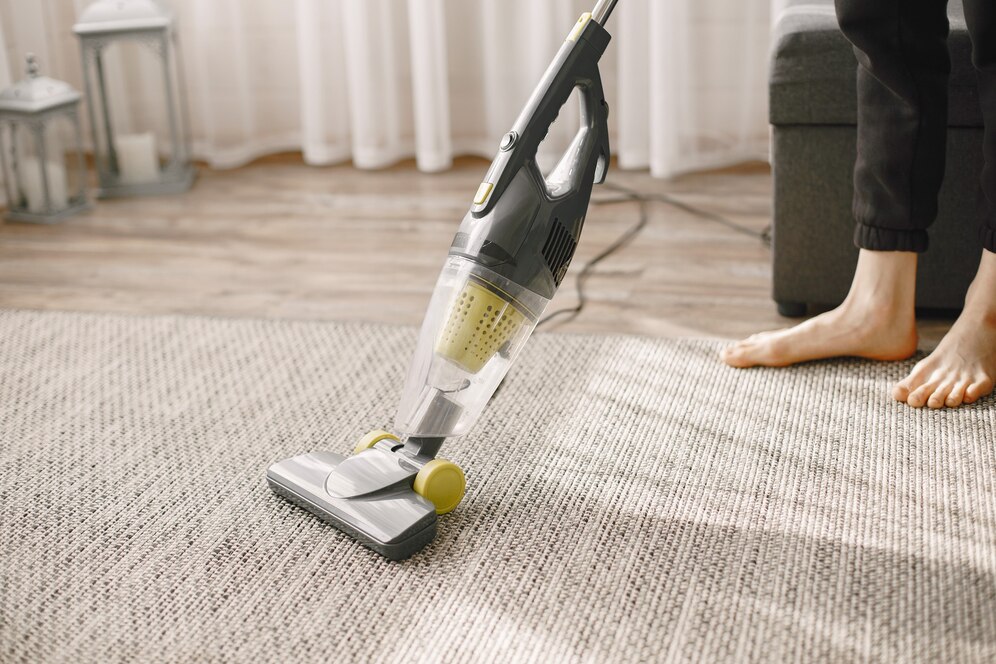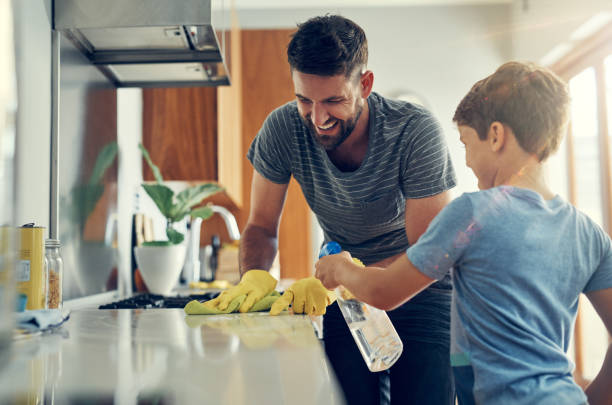There is no doubt that a house fire can be a devastating experience for homeowners. Whether it is just a small fire in the kitchen, or a fire that does a lot of damage to your home, the after-effects bring not only physical property damage to light, but it can also cause a high level of emotional stress.
Restoring the safety and liveability of your home after a fire requires a comprehensive and professional approach.
What You Need to Consider After a Fire
We know that people are often anxious to get back into their homes after a fire but there are a few things you need to consider or organise before doing this. Of course, the steps you need to take will depend on how extensive the fire was.
Safety First: Before entering your home, make sure that authorities have declared it safe to do so. You should also consider having the structural integrity of the building assessed by professionals to identify any hazards.
Contact Your Insurance Company: Notify your insurance company about the fire damage immediately. Document the damage with photographs and videos to assist in the claims process.
Professional Assessment: Hire a professional fire damage restoration company to assess the extent of the damage. They can provide a detailed report and an estimate for the restoration work.
Secure the Property: If necessary, board up windows and doors to secure the property from unauthorised access and further damage.
Water Damage Mitigation: Water damage is common after a fire due to firefighting efforts. Ensure proper drying and dehumidification to prevent mould growth. Extract standing water and use industrial fans and dehumidifiers to dry the affected areas.
Smoke and Soot Removal: Clean surfaces affected by smoke and soot using appropriate cleaning agents. Hire professionals for thorough cleaning to prevent lingering odours and potential health issues.
Remove Damaged Items: Dispose of items that are beyond repair or restoration and salvage and clean items that can be saved, such as furniture, clothing, and personal belongings.
Air Quality Assessment: Test indoor air quality to ensure that it is safe for occupancy. Install air purifiers and use ventilation systems to improve air circulation.
Structural Repairs: Work with contractors to repair and rebuild damaged structural elements. Ensure that the electrical, plumbing, and HVAC systems are thoroughly inspected and repaired.
Mould Prevention: Prevent mould growth by thoroughly drying the affected areas. If mould is present, hire professionals to remediate and remove it.
Restoration of Personal Belongings: Work with professionals who specialise in restoring personal items such as documents, photographs, and heirlooms.
Rebuilding and Renovation: Collaborate with contractors to rebuild and renovate your home, making necessary upgrades and improvements.
Monitor Health: Keep an eye on your health and that of your family members. Seek medical attention if anyone experiences symptoms related to smoke exposure.
Emotional Support: Recognise the emotional toll of a fire and seek support from friends, family, or counselling services.
Restoring your home after fire damage is a complex process that requires expertise and patience. By following these steps and working with professionals, you can gradually rebuild and create a safe, liveable environment for you and your family.
How a House Fire Can Be Damaging to Your Health
We know that house fires can damage your building, but they can also have various implications on your health simply due to the mix of pollutants and hazards that can come from the combustion of materials throughout your home.
Here are some things you need to be on the lookout for, that may damage your health after a fire.
Inhalation of Smoke and Toxic Gases
The smoke produced during a fire contains a combination of toxic gases, including carbon monoxide, hydrogen cyanide, and other harmful chemicals. Inhaling these substances can lead to respiratory distress, dizziness, nausea, and, in severe cases, can be fatal.
Particulate Matter (PM) Exposure
Fires generate particulate matter, tiny particles suspended in the air. These particles can penetrate deep into the respiratory system and may cause or exacerbate respiratory issues such as asthma, bronchitis, and other lung diseases.
Chemical Exposure
The burning of household items releases a variety of chemicals, including formaldehyde, benzene, and other volatile organic compounds (VOCs). Prolonged exposure to these chemicals can irritate the eyes, nose, and throat, and may contribute to long-term health problems.
Carbon Mono xide Poisoning
Incomplete combustion of materials produces carbon monoxide, a colourless and odourless gas. Carbon monoxide poisoning can lead to headaches, dizziness, nausea, confusion, and can be fatal if not addressed promptly.
Secondary Health Risks
Water used to extinguish the fire, either from firefighting efforts or burst pipes, can lead to mould growth if not properly dried. Mould exposure can cause respiratory issues and allergies, leading to further health complications.
Burn Injuries
Direct exposure to flames can cause burn injuries, ranging from minor burns to severe, life-threatening burns. The treatment of burn injuries may require extensive medical care and can lead to long-term physical and emotional effects.
Emotional and Psychological Impact
Experiencing a house fire can have a profound impact on mental health, leading to stress, anxiety, depression, and post-traumatic stress disorder (PTSD). Coping with the loss of property, personal belongings, and the trauma of the event can contribute to ongoing mental health challenges.
Contamination of Personal Belongings
Items exposed to smoke and soot can become contaminated with harmful substances. Without proper cleaning and restoration, these items may pose a health risk when reintroduced into the living environment.
Injury from Structural Damage
Structural damage caused by the fire can create safety hazards, increasing the risk of injuries from falling debris or compromised building materials.
Complications for Vulnerable Populations
Children, elderly individuals, pregnant women, and individuals with pre-existing health conditions may be more vulnerable to the health effects of a house fire.
In the aftermath of a house fire, it is essential to prioritise both physical and mental health. Seeking medical attention for any symptoms, ensuring proper cleaning and restoration, and addressing the emotional impact of the event are crucial steps to mitigate the health risks associated with a house fire.
Why You Should Use a Professional Restoration Service
After a fire, you may consider doing the cleaning yourself, and a lot of people do attempt it. However, we really recommend that you use a professional restoration service for several reasons.
Expertise and Experience
Professional restoration companies have the expertise and experience to assess the extent of fire damage accurately. They understand the nuances of different types of damage, including smoke, soot, and water damage, and can develop comprehensive restoration plans.
Efficiency and Speed
Professionals are equipped with the necessary tools, equipment, and manpower to carry out restoration quickly and efficiently. Prompt action is crucial in preventing further damage and reducing the overall restoration time, getting you back into your home quicker.
Safety Considerations
Restoration involves handling potentially hazardous materials, including chemicals, debris, and damaged structures. Professionals are trained to prioritise safety during the restoration process.
They are also familiar with safety regulations and can ensure that the restoration work complies with industry standards.
Thorough Assessment
Professionals can conduct a thorough assessment of the damage, identifying hidden issues that may not be immediately apparent. This comprehensive evaluation allows for a more accurate restoration plan and helps prevent problems from arising later.
Specialised Equipment
Restoration professionals use specialised equipment, such as industrial-grade dehumidifiers, air scrubbers, and thermal imaging devices, to address specific issues like water damage and mould growth effectively. This equipment is often not readily available for homeowners to use on their own.
Prevention of Secondary Damage
Professionals can prevent or minimise secondary damage, such as mould growth, by addressing the root causes promptly and effectively. Their expertise in moisture control and structural drying can help avoid long-term issues that may arise if moisture is not properly managed.
Insurance Coordination
Restoration professionals can work closely with insurance companies to facilitate the claims process. They understand the documentation and reporting requirements, helping ensure that you receive fair compensation for the damages covered by your insurance policy.
Comprehensive Restoration Services
Professional restoration services often offer a wide range of services, including structural repairs, cleaning, deodorisation, and content restoration. This comprehensive approach ensures that all aspects of the restoration process are addressed in a coordinated manner.
Peace of Mind
Engaging professionals provides peace of mind, knowing that trained experts are handling the restoration process. Homeowners can focus on other priorities, such as the well-being of their family, while professionals take care of the intricate details of the restoration.
Long-Term Savings
While hiring professionals may involve upfront costs, their expertise can prevent costly mistakes and long-term issues that may arise from incomplete or inadequate restoration attempts.
Hiring a professional restoration service after a fire is a prudent decision to ensure a thorough, safe, and efficient restoration process. The expertise, experience, and specialised equipment that professionals bring to the table can make a significant difference in the outcome of the restoration efforts.
Professional Perth Surface Cleaning
If you’ve been through the unfortunate experience of a house fire, and need restoration and fire damage cleaning services, reach out to our friendly team. We’d love to help you get back into your home quicker.


